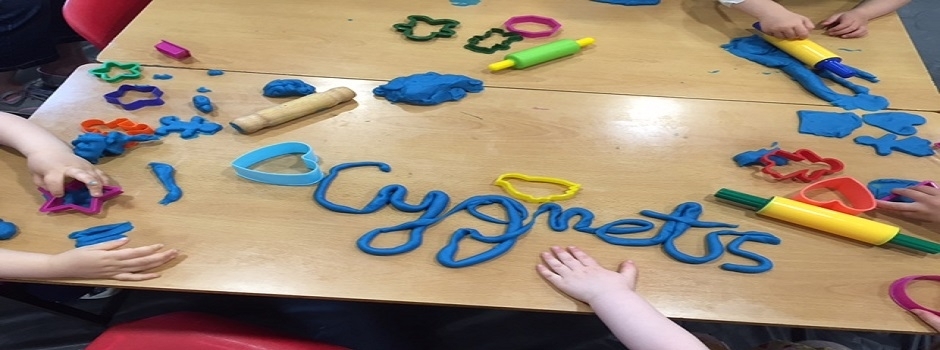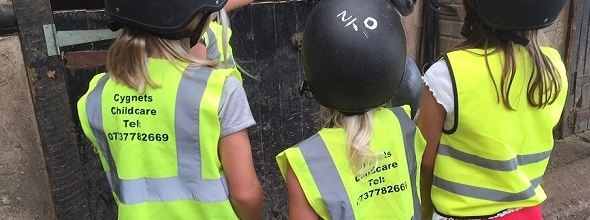CurriculumUnder Construction... Introduction to national curriculum The Early Years Foundation Stage (EYFS) framework is designed to support the learning, development, and care of children from birth to five years old. It focuses on three key aspects: intent, implementation, and impact. IntentThe intent of the EYFS is to provide a high-quality early education that lays a strong foundation for future learning. This involves:
ImplementationImplementation refers to how the curriculum is delivered in practice. This includes:
ImpactThe impact of the EYFS is measured by the progress and outcomes achieved by the children. This involves:
By focusing on these three aspects, the EYFS aims to provide a comprehensive and effective early education that supports all areas of a child’s development. Learn more 1. ndna.org.uk 2. cbppschool.co.uk 3. saltfordschool.org.uk 4. twinkl.co.uk 5. thelinksprimary.org.uk Introduction to Cygnets Curriculum We are inspired by the Forest School, Regio Emilia and few other education approaches when planning and delivering our curriculum Our Curriculum Intention Our comprehensive curriculum plan
focuses on delivering the Department of Education's early years curriculum goals
with a home-from-home touch. It encourages what a parent would like their
children to learn in their early years, such as good morals, staying close to
nature, developing a love of reading, becoming aware of finances, and valuing
music, dance, and creative art's role in maintaining well-being. Our 14
core values define our ‘personal excellence’ and are the backbone of
Cygnets, shaping our curriculum and pedagogy, and guiding our behaviours. Our
ultimate goal is to prepare our child for lifelong learning and for them to
enjoy their early years of learning in a loving, respectful and stimulating
environment where they can thrive and achieve best potential. Our Long-Term Curriculum Plan for Ages 3-4 at Cygnets Childcare is
meticulously crafted, drawing from a wealth of knowledge and expertise unique
to Cygnets Childcare. We have carefully considered and utilised the following
Curriculum Guidance Documents to shape what we want our children to learn. DfE_Development_Matters_Report_Sep2023.pdf
(publishing.service.gov.uk) We would like you to follow the document
below at home to understand what to expect in the early years and help enhance
your child's development at home. Talk to us if you have any concerns about
your child's development at home so we can support you with the graduated
response process and put early intervention strategies in place to help your
child meet development milestones. We can also use this information to support
your child’s transitions, including school transition, to be as smooth as
possible. Please refer to our SEND policy for further information. Revised_What-to-expect-in-the-EYFS-complete-FINAL-16.09-compressed.pdf
(foundationyears.org.uk) At Cygnets Childcare, we deeply
value parents' input in shaping their child's early years curriculum. We
understand children’s biggest development and future success is based outside
the early years, and parent involvement in a child’s development continues all throughout
the child's education until they become adults. In fact, 86% to 98% of the
words used by each child by the age of three
were derived from their parents’ vocabularies Microsoft Word - The Thirty Million Word Gap - A Summary
(wvearlychildhood.org). Our early years curriculum is not just a
plan but a collaborative effort we have undertaken with you since our first
meeting during your child’s admission. It also prepares you as the parent to
continue supporting your child in continuous education. Every little thing
matters to your child's development, such as bringing your child to Cygnets on
time and keeping attendance levels above 96%, providing adequate changing
clothes, sending your child ready to play in weatherproof gear, honest and
transparent communication, building a good relationship with the key worker, supporting
the practitioner to prepare important reports about your child, or even share child’s
home language top tips with the practitioner etc. Our ambitious and
well-sequenced curriculum prepares our children for the next stage of their education.
We expect all our setting parents to work with us to review, update, and help redesign
the curriculum to meet our children's ever-evolving needs, government requirements
and the latest advancements in our living place. Your involvement is not just
welcomed but crucial, as it directly influences your child's knowledge and life
skills in the early years onwards. ·
What do we want our children to learn and why:
Our curriculum
journey aims to make our children healthy, thoughtful and hungry enough to be lifelong
learners. Our written curriculum guides our long-term plans for children to
encounter, explore and learn at Cygnets. Therefore, we aim to be flexible in individualising
the curriculum activities to let children experience the awe and wonder of
the world in which they live, through the seven areas of learning so the curriculum
can be enjoyable and interesting and can meet their growing individual needs
and interests as we meet the England curriculum guidance. We believe Cygnets
curriculum should balance between adult-led and child-initiated playfulness, both
indoors and outdoors, which is challenging and enjoyable for children to take
managed risks, learn and remember a happy and engaging childhood so our
children develop a positive image about early years education to conform for
more formal education at school age, value lifelong friendships and diversity,
be inclusive of others and develop a love for endless knowledge absorption and
skill gathering. ·
How we help children know more and remember
more: We understand that in the first few years of life, more than 1
million new neural connections are formed every second. Research has shown that
children cultivate 85% of their intellect, personality, and skills by age five.
We believe in our setting being rooted in their communities, responsive to the
full range of diversity of our local families and children, and providing a
curriculum that competently weaves together head, heart and hand. We understand
every child is unique, and their brain develops at their own pace. Therefore, providing
a loving, attentive, and enriching environment is the best way to support their
development. Our home-from-home environment provides childcare and
education as close as it possibly can get to a natural home environment with
loving attachments and we know our care is only second to child's own home. Children hear
about 46 million words before they reach age five. However, they remember,
understand and talk words only if they have the opportunity to use them
regularly and develop a multi sensory connection to the word. In the process of helping
children to remember, Cygnets Childcare recognise the power of stories in teaching and the whole-body
experiences in learning. Therefore, Cygnets Practitioners regularly use Story-Telling in structured education to pique
children’s curiosity and wonder. Many activities Cygnets offers allow children
to explore words in a natural environment where inclusion is promoted. Our written
and spontaneous curriculums provide many opportunities for children to experiment
with vocabulary in role-play, use their head, heart and hand purposefully and bring those
book characters and imagination to real life. We use ‘knowing more and
remembering more’ for all areas of learning in the EYFS, such as knowing how to
balance on a wheeled toy or when to use the toilet, positive body posture,
voice control and look people on the eye when talking and listening and read
the non-verbal cues to show active listening, use hand to stroke an animal
gently and experience the reaction, plant a seed and see the feel of growth
satisfaction, having the freedom and time to think and resolve problems
independently and many more similar engagements cygnets children encounter as a
child in our home-from-home based environment is just as important as knowing,
remembering, and understanding more words or numbers in preparation for future
success. Furthermore, such homely childhood experiences help children learn
more and strengthen our children's long-term brain memory muscle buildup to
retain information during their core brain development stage in early years. In delivering
the Cygnets curriculum, we also focus on implementing strategies that help children's
memory stick, such as sequencing, repetition, association, novelty, emotional
resonance, mnemonic, testing etc. As Dr
Wendy Suzuki, the Neuroscientist, expresses, we understand using these
strategies are closely linked to the development of brain functioning and Muscle growth such as the hippocampus, an
associative structure that recognises the name’s linked to the face, the
emotional resonance is functioning of the Amygdala. Furthermore, sleep helps
memory consolidation. Also, positive relationships, listening to music, drawing
and painting, and many more therapeutic experiences can prepare the brain to
sustain long-term memory and stretch brain plasticity. Active physical exercise
and body movements such as dancing, drumming, running, walking and playing in
the park using the whole body are central to helping release dopamine and
contribute to attention, problem-solving and memory as dopamine helps processing
what happen from a whole brain perspective, leaping from left brain to right or
right brain to the left. A well-balanced dopamine level helps both physical and
mental health. We believe exposing children to good life habits from early
stages helps them gradually understand and build their own techniques and strategies
to interweave their brains and remember more from
early years.
·
How do we measure this success? We track our
children’s progress and share the statutory two-year development progress summary
reports, have two pre-planned development review meetings per year per child and
share information about children’s progress and involve Cygnets families in
their learning journey. We talk to parents during daily handover times to
understand child interest at home, how home learning progresses, child
interests and well-being. We want to ensure that children’s needs are
identified at the earliest stage possible and that the most appropriate support
strategies are implemented in partnership with parents. This will enable all our
children to progress and realise their individual potential and education sustainability.
Cygnets Childcare would follow a clear, graduated framework in partnership with
Surrey so that our early years' education setting and multi-agency stakeholders
can provide well-coordinated early intervention and support (universal, setting,
specialised, or statutory assessment) for our children to reach their full potential
socially, emotionally, physically and academically. Please refer to our SEND
policy for further information on how Cygnets support your child through the SEND
process. In addition, parents can also request support from Surrey SEND support
directly if further support requirements exist. |

